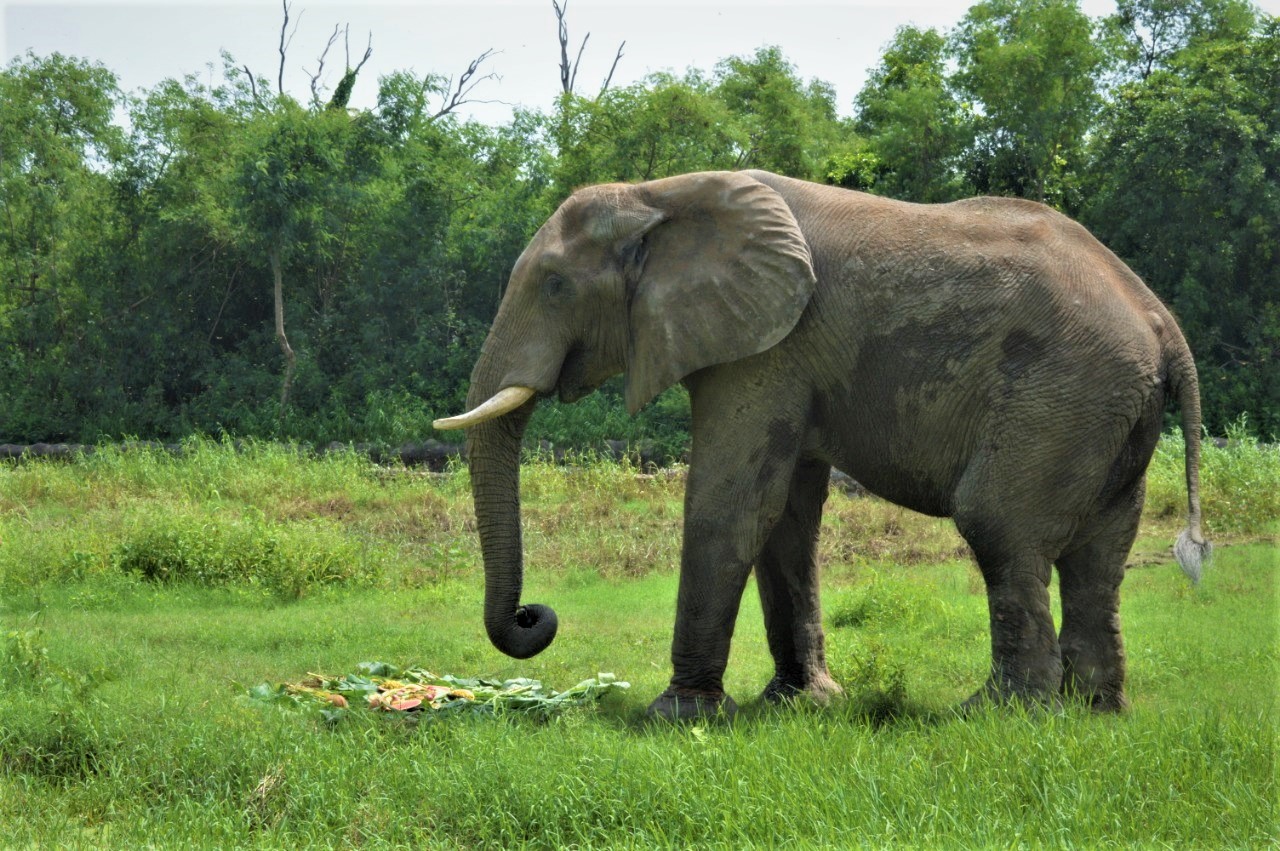A global alliance of zoos and aquariums suspended Delhi’s National Zoological Park’s membership on Monday due to concerns over the treatment of Shankar, an African elephant allegedly kept in chains.
Delhi Zoo Director Sanjeet Kumar stated that the zoo would address the suspension.
The elephant, a gift from Zimbabwe to then-President of India Shankar Dayal Sharma in 1996, has been housed at the Delhi zoo since its arrival. Shankar has been living alone since 2005, following the death of his companion, another African elephant named Bambai.
The World Association of Zoos and Aquariums (WAZA) sent a letter to Kumar and the Central Zoo Authority, under the Union environment ministry, noting that it had previously requested information about Shankar’s welfare and received responses on May 24 and July 24.
Also Read: Zimbabwe’s gift to Delhi: alone in captivity for almost 20 years
After reviewing the situation, the WAZA Council decided to suspend the National Zoological Park’s membership, effective immediately, as mentioned in the letter.
WAZA stipulated that to lift the suspension, the zoo must develop a plan within six months to either relocate Shankar or address all concerns regarding his care and management. The plan needs WAZA’s approval and should demonstrate significant improvements in Shankar’s welfare.
Also Read: Delhi Zoo to get male rhino, tiger and hornbill from Guhawati
If relocation is chosen, Shankar must be trained for the transition using positive reinforcement to reduce stress, WAZA added.
The letter warned that if the zoo fails to have an approved plan by April 7, 2025, its membership will be permanently terminated.
While suspended, the zoo loses all WAZA membership privileges, including participation in conferences and committees.
The zoo can appeal the decision within 60 days by writing to the WAZA president, though the suspension will remain in effect during the appeal process.
WAZA, founded in 1935, promotes high standards for the welfare of animals and their habitats globally, with nearly 400 leading institutions and organisations as members. (With inputs from PTI)





